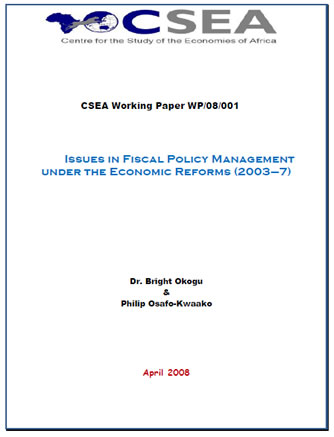Author:Dr. Bright Okogu &Philip Osafo-Kwaako
Oil-dependent economies face two interrelated challenges in the management of oilresources: in the short run, there is the need to create a stable macroeconomic environmentby delinking oil revenue earnings from public expenditures, while in thelong run it is necessary to maintain a sustainable use of resources that ensures intergenerationalequity. In most of the past three decades, Nigerias management of oilresources was poor. The Nigerian economy has experienced significant macroeconomicvolatility, driven largely by external terms-of-trade shocks, the countrys largereliance on oil export earnings and poor policy choices in the management of oilrevenues. By some measures, Nigeria ranked among the most volatile economies inthe world for the period 19602000. Moreover, contrary to the receivedwisdom of increasing financial assets as a means of saving oil revenues, Nigeria hadaccrued significant domestic and foreign liabilities.

